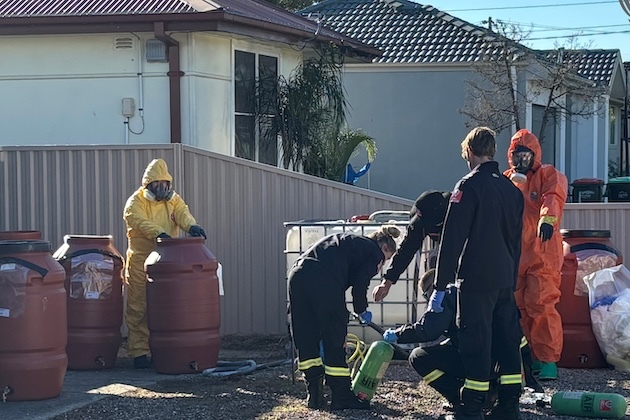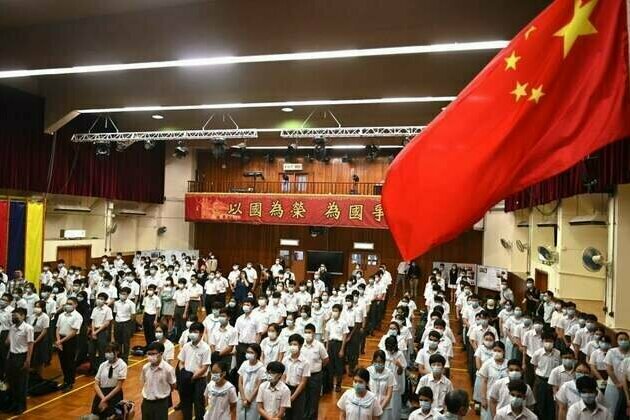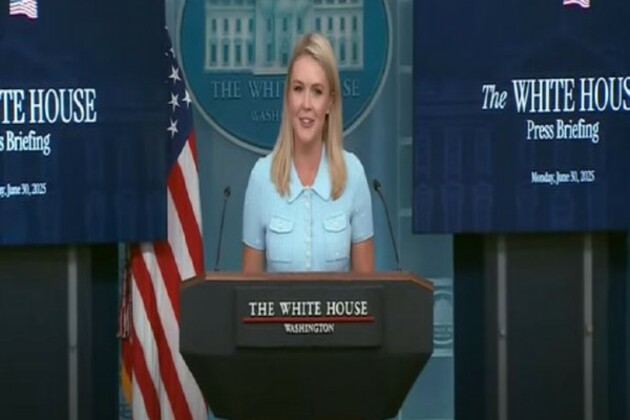Parents say their children have tutors to fill gaps, not to charge ahead
The Conversation
13 Jun 2019, 01:49 GMT+10

When you think about private tutoring, you might imagine parents striving to give their children a competitive edge. But many parents use tutoring to fill gaps in their child's schooling - such as to improve their literacy.
In our research, some parents did speak of tutoring as a way of securing entry into the school they want for their child. But these were in the minority. Most spoke of using it to help fix academic problems, temporary and ongoing.
There has been a rise in parents employing private tutoring services for their children in recent years - in Australia and other countries. In Britain, for instance, the private tuition sector is worth an estimated Pound 2 billion (A$3.6 billion).
The rise of private tutoring shows parents are taking responsibility for children to achieve Australia's national literacy goals. It seems they believe the education provided at school is simply not enough to meet a learner's needs.
Private tutoring on the rise
In Brisbane, we saw branded signage of new tutoring companies appearing in the local shops. We also found advertisements for tutoring in streets near schools, in school newsletters, on parent sites on Facebook, and on community noticeboards.
And we wanted to find out why tutoring was so appealing to parents.
We interviewed 35 parents about tutoring for their Year 5 (aged around 9-10) children. The parents were from both urban and rural areas. Around three-quarters were sending their children to public schools and one-quarter to Catholic or independent schools.
Of the 35 parents, 23 had used tutoring for some of their children or planned to do so. Ten said they had thought about it or would use it if necessary.
Two were reluctant to get their child a tutor despite their children's educators encouraging them to do so. One of these parents told us her child had missed a lot of school for medical problems, but their location was a problem when it came to accessing tutoring.
Why do parents pay for tutoring?
The tutoring market offers parents many options. Services range from help with homework, to test and examination coaching, and instruction in the reading and writing content of the Australian Curriculum: English.
Most of the parents (20) we interviewed spoke of using tutoring to fix what they saw as their children's academic problems.
Sometimes the problem was a specific gap in knowledge and skills. One parent had been averse to tutoring but then her child's English grades dropped a little:
This tutoring was short-term.
The second-biggest group of parents (9) told us they used tutoring to support suspected or diagnosed learning difficulties in their children. These included dyslexia (inability to read accurately), dysgraphia (inability to write coherently), autism and attention-deficit hyperactivity disorder (ADHD).
One of these parents told us the school couldn't give enough personalised attention to her child:
For another of these parents, the private tutor was a helpful ally in a cooperative relationship between the family, the school teacher and the tutor:
Another took her child to a private tutor during school time to support diagnosed learning difficulties. While this mother felt the tutoring was helpful, the cost became prohibitive. She told us:
The final, and smallest, group of the parents we spoke to (just three) used tutoring as one of the many enrichment activities they used for their children.
Two of these parents had prepared their children for scholarships or entry exams to selective schools. As one parent told us, "we had ten lessons on testing".
Read more: Selective schools increasingly cater to the most advantaged students
The future of private tutoring
So, some parents do use tutoring as part of hyper-competitive and remedial education strategies. These more traditional uses of tutoring remain relevant for parents today. However, parents now also use tutoring more broadly to optimise their children's school experience and achievement.
Parents have been "responsibilised" (a concept that assumes people are charged with responsibility for achieving the goals of national policy) for making all manner of choices to create the best education for their child.
Tutoring is one resource for the responsibilised parent.
We need to have a community conversation about the limits of responsibilisation. A few parents talked about the cost constraining their use of tutoring:
A child's mastery of literacy shouldn't be constrained by their parents' income.
Authors: Karen Dooley - Associate Professor, Queensland University of Technology | Elizabeth Briant - Senior Research Assistant, PhD Candidate, Queensland University of Technology | Rebecca English - Lecturer in Education, Queensland University of Technology 
 Share
Share
 Tweet
Tweet
 Share
Share
 Flip
Flip
 Email
Email
Watch latest videos
Subscribe and Follow
Get a daily dose of China National News news through our daily email, its complimentary and keeps you fully up to date with world and business news as well.
News RELEASES
Publish news of your business, community or sports group, personnel appointments, major event and more by submitting a news release to China National News.
More InformationBusiness
SectionWall Street extends rally, Standard and Poor's 500 hits new high
NEW YORK, New York - U.S. stock markets closed firmly in positive territory to start the week Monday, with the S&P 500 and Dow Jones...
Canadian tax on US tech giants dropped after Trump fury
WASHINGTON, D.C.: On Friday, President Donald Trump announced that he was halting trade discussions with Canada due to its decision...
Trump-backed crypto project gets $100 million boost from UAE fund
LONDON, U.K.: A little-known investment fund based in the United Arab Emirates has emerged as the most prominent public backer of U.S....
DIY weight-loss drug trend surges amid high prices, low access
SAN FRANCISCO, California: Across the U.S., a growing number of people are taking obesity treatment into their own hands — literally....
Apple allows outside payment links under EU pressure
SAN FRANCISCO, California: Under pressure from European regulators, Apple has revamped its App Store policies in the EU, introducing...
Euro, pound surge as U.S. rate cut odds grow after Powell hint
NEW YORK CITY, New York: The U.S. dollar tumbled this week, hitting its lowest levels since 2021 against the euro, British pound, and...
Asia Pacific
SectionDeepSeek faces app store ban in Germany over data transfer fears
FRANKFURT, Germany: Germany has become the latest country to challenge Chinese AI firm DeepSeek over its data practices, as pressure...
Western Sydney raid results in seizure of $25 Million in drugs
SYDNEY, NSW, Australia - , Australian Federal Police (AFP) have shut down a secret drug lab in Sydney's west and seized more than 100kg...
China: Building a 'Patriots Only' Hong Kong
(New York) - China's government has erased Hong Kong's freedoms since imposing the draconian National Security Law on June 30, 2020,...
"Will hear from President and his trade team soon when it comes to India": White House spokesperson
By Reena Bhardwaj Washington DC [US], July 1 (ANI): White House Press Secretary Karoline Leavitt on Monday (US local time) confirmed...
UAE supplies 40.8 pc of Japan's oil imports in May
Tokyo [Japan], June 30 (ANI/WAM): The United Arab Emirates was Japan's top crude oil supplier in May 2025, providing Tokyo with 30.42...
QUAD nations launch 'QUAD at Sea Ship Observer Mission', deepening maritime cooperation in Indo-Pacific
New Delhi [India], June 30 (ANI): In a landmark step towards deepening maritime cooperation in the Indo-Pacific, the Coast Guards of...













